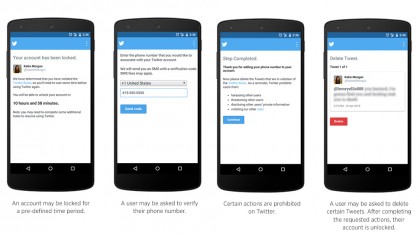Twitter at 10: the good, the bad and the 'where does it go from here?'
10 years of Twitter
The bad
Twitter's treatment of third party apps
Third party apps helped fuel Twitter's meteoric rise, not least Twitteriffic: it coined "Tweet", introduced replies and conversations and put Twitter on the iPhone. But in late 2012 Twitter began dramatically limiting third parties' access to the service, and what was a thriving developers' playground has largely gone. It's all about the ads: Twitter needs people to see the advertising that pays its bills, and with third party apps it can't guarantee that people will.
Thieves
Twitter can be a good forum for exposing plagiarists - small designers routinely embarrass the high street fashion chains that nick their designs - but it's also a good forum for plagiarists to operate in. Joke thieves are a particular headache for comedians who see their brand new jokes shared on Twitter without credit before they've even finished their show, and some people base their entire Twitter presence on stealing others' work. Twitter has also become a source of unpaid content for some highly profitable sites that we won't mention but you know who they are.
Twitter mobs
At its best Twitter is hilarious, at its worst it's horrific. Celebrities send Twitter mobs howling after their critics, poorly chosen words result in a torrent of abuse, people who disagree with others can round up a posse to try and drive their enemies offline, and a joke tweeted before you board a flight can have you sacked before you land. All too often Twitter appears to be a kind of instant outrage machine, George Orwell's Two Minute Hate made depressingly real.

Trolls
Sign up for breaking news, reviews, opinion, top tech deals, and more.
Trolling is a word whose meaning has changed dramatically. What was a light-hearted attempt to wind up rival fans of music, football or economic theories has become a term to describe the systematic abuse of minorities, and of women in particular, by people who don't understand the hurt they're causing but who understand that the chances of being caught are infinitesimal.
Twitter's apparent inability to control trolling could well be its downfall: a service where many of its users can expect to be routinely abused is a service facing a threat to its very existence.
Where does it go from here?
Twitter is currently in a tricky situation. Its shareholders are demanding growth (users to you and I) but it has to do this without alienating its current, highly loyal user base.
Changes are happening and fast. The addition of Moments is a recent and great way to entice new people to the service. As it's an extra tab, older users can choose to ignore it, while newer Twitter followers can delve in, find people to follow and feel like they are part of a bigger thing. There's nothing lonelier than hitting Twitter for the first time and not knowing what to do or who to follow - never mind what the hell a retweet is.
Twitter's recent algorithm change, however, is something altogether different and worrying. It's a big change that affects all users, though you can opt out. Gone is Twitter's reverse chronology of Tweets and in its place at the top of your timeline are Tweets it reckons you will like.
Again, it's a change that's been put in place to pander to new users and make the service more approachable but this may put power users off. Couple this with the possibility of the 140-character limit disappearing, at least in some form, and what you have is a very different Twitter from what it is now.
All of these changes have happened so quickly over the last few months, trying to guess what the site will look in 2026 would be remiss of us.
Here's hoping, though, that it's a place free from trolls and thieves and packed with everything that currently keeps us coming back to it every single day: tweets that make us want to laugh, cry, share and shout.

Contributor
Writer, broadcaster, musician and kitchen gadget obsessive Carrie Marshall has been writing about tech since 1998, contributing sage advice and odd opinions to all kinds of magazines and websites as well as writing more than twenty books. Her latest, a love letter to music titled Small Town Joy, is on sale now. She is the singer in spectacularly obscure Glaswegian rock band Unquiet Mind.